|
Books Should Be Free Loyal Books Free Public Domain Audiobooks & eBook Downloads |
|
|
Books Should Be Free Loyal Books Free Public Domain Audiobooks & eBook Downloads |
|
Religion |
|---|
|
Book type:
Sort by:
View by:
|
By: Friedrich Bente [translator] (d. 1930) | |
|---|---|
 Book of Concord Preface
Book of Concord Preface
The Christian Book of Concord was published in 1580 as a collection of eleven documents: Three Ecumenical Creeds and eight documents from the Reformation Era. Here is the Preface to the entire work together with the Saxon Visitation Articles from 1592. | |
By: Friedrich Nietzsche (1844-1900) | |
|---|---|
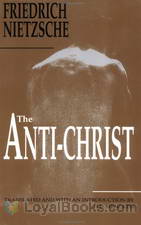 The Antichrist
The Antichrist
Save for his raucous, rhapsodical autobiography, Ecce Homo, The Antichrist is the last thing that Nietzsche ever wrote, and so it may be accepted as a statement of some of his most salient ideas in their final form. Of all Nietzsche’s books, The Antichrist comes nearest to conventionality in form. It presents a connected argument with very few interludes, and has a beginning, a middle and an end. | |
 The Joyful Wisdom
The Joyful Wisdom
The Joyful Wisdom (later translated as The Gay Science), written in 1882, just before Zarathustra, is rightly judged to be one of Nietzsche’s best books. Here the essentially grave and masculine face of the poet-philosopher is seen to light up and suddenly break into a delightful smile. The warmth and kindness that beam from his features will astonish those hasty psychologists who have never divined that behind the destroyer is the creator, and behind the blasphemer the lover of life. In the retrospective... | |
By: Friedrich von Hügel (1852-1925) | |
|---|---|
 Essays and Addresses on the Philosophy of Religion
Essays and Addresses on the Philosophy of Religion
Baron Friedrich von Hugel was a lay Catholic theologian whose work was influential during the rise of modernist thought. His Essays and Addresses on the Philosophy of Religion became a favorite work of later Christian writers C.S. Lewis and Flannery O'Connor. The book compiled previously written material into a single collection, divided into three parts: the first, on religion and theism in general; the second, on Christ's teachings and Christianity in general; the third, on the Catholic Church. - Summary by Dylan P. Straub | |
By: Fulke Greville (1554-1628) | |
|---|---|
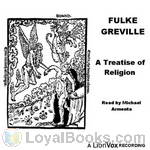 A Treatise of Religion
A Treatise of Religion
Part diatribe, part discourse, part sermon and part stand-up comedy, this is Fulke Greville's 114 stanza, verse-poem about religious hypocrisy. | |
By: G. A. McLaughlin (1851-1933) | |
|---|---|
 Saved and Kept: or How to Get Saved and How to Keep Saved
Saved and Kept: or How to Get Saved and How to Keep Saved
This little volume is by no means intended to be a theological work. Nor does it attempt to show the details of the Christian life. The author seeks to point out the principal means by which sincere souls may be saved and keep saved. It is intended to be a simple, direct exposition of the way of salvation, put in every-day language, with the earnest desire that ‘‘he that runneth may read,"’ and that the reader may be helped in reaching the goal, and in finding an abundant entrance into the City of God. With this single aim we launch this little book, praying that it may be helpful to some soul who seeks to know what God has for him. - Summary by G. A. McLaughlin | |
 Clean Heart
Clean Heart
"Much of the preaching and teaching of religion is in a theological dialect that is scarcely more intelligible to the people than a foreign language. Many pulpits need an interpreter as much as do the foreign missionaries among the heathen. The attempt of the writer is to put the matter of full salvation in a simple, direct way, that all may see the simplicity of a subject that is sometimes “darkened with words". It is an attempt to show that the experience of a clean heart is but the answer to a prayer that is both scriptural and reasonable. It is an attempt to furnish food for hungry souls...” | |
By: G. Campbell Morgan (1863-1945) | |
|---|---|
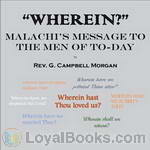 Wherein?
Wherein?
These studies in the book of Malachi were delivered as addresses to the students at Mr. Moody’s Bible School in Chicago, and then to my own congregation. They have also appeared in “The Record of Christian Work” in the United States, and in “Out and Out” in England. They are now sent out in a more permanent form, after careful revision, with the prayer that they may be used of God in calling His own children into the place of power without which form is nothing. (Introduction by G. Campbell Morgan) | |
 First Century Message to Twentieth Century Christians
First Century Message to Twentieth Century Christians
G. Campbell Morgan was one of the leading evangelical preachers of his day. He began preaching at age 13 and by age 26 was teaching at the Moody Bible Institute in Chicago, Illinois. He returned to England in 1904 to become pastor at Westminster Chapel in London. He was a contemporary and friend Martyn Lloyd-Jones, F. B. Meyer and Charles Spurgeon. In this book, Morgan examines the letters to the seven churches of Asia which begin the book of Revelation in the New Testament. Over 1900 years have passed, and yet our churches today face many of the same temptations, struggles and challenges as those faced by these first century believers... | |
 Practice of Prayer
Practice of Prayer
God has made prayer possible to us through Jesus. We can pray prevailingly only as we respond to the truths which create the possibility. The sphere of prayer includes the coming of the Kingdom of God and the provision of all the need of the saints. Thus all these constitute an integral part of the subject of the practice of prayer. Prayer is only possible to the revealed Father through the mediating Son by the inspiring Spirit. Prayer is only a prevailing power as, in the life, the child of God is loyal to His Kingship, satisfied with His provision, conformed to His likeness. Moreover, it can only be operative within the sphere revealed in the pattern of prayer. | |
By: G. H. (George Henry) Gerberding (1847-1927) | |
|---|---|
 The Way of Salvation in the Lutheran Church
The Way of Salvation in the Lutheran Church
| |
By: G. K. Chesterton (1874-1936) | |
|---|---|
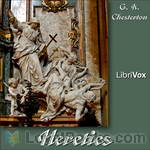 Heretics
Heretics
The Author Gilbert Keith Chesterton was born in London, England on the 29th of May, 1874. Though he considered himself a mere “rollicking journalist,” he was actually a prolific and gifted writer in virtually every area of literature. A man of strong opinions and enormously talented at defending them, his exuberant personality nevertheless allowed him to maintain warm friendships with people–such as George Bernard Shaw and H. G. Wells–with whom he vehemently disagreed. Chesterton had no difficulty standing up for what he believed... | |
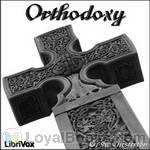 Orthodoxy
Orthodoxy
Orthodoxy is a book that has become a classic of Christian apologetics. In the book's preface Chesterton states the purpose is to "attempt an explanation, not of whether the Christian faith can be believed, but of how he personally has come to believe it." In it, Chesterton presents an original view of the Christian religion. He sees it as the answer to natural human needs, the "answer to a riddle" in his own words, and not simply as an arbitrary truth received from somewhere outside the boundaries of human experience. | |
 The New Jerusalem
The New Jerusalem
“On the road to Cairo one may see twenty groups exactly like that of the Holy Family in the pictures of the Flight into Egypt; with only one difference. The man is riding on the ass.” “The real mistake of the Muslims is something much more modern in its application than any particular passing persecution of Christians as such. It lay in the very fact that they did think they had a simpler and saner sort of Christianity, as do many modern Christians. They thought it could be made universal merely by being made uninteresting... | |
 The Ball and the Cross
The Ball and the Cross
The Ball and the Cross is G. K. Chesterton's third novel. In the introduction Martin Gardner notes that it is a "mixture of fantasy, farce and theology." Gardner continues: "Evan MacIan is a tall, dark-haired, blue-eyed Scottish Highlander and a devout Roman Catholic.... James Turnbull is a short, red-haired, gray-eyed Scottish Lowlander and a devout but naive atheist.... The two meet when MacIan smashes the window of the street office where Turnbull publishes an atheist journal. This act of rage occurs when MacIan sees posted on the shop's window a sheet that blasphemes the Virgin Mary, presumably implying she was an adulteress who gave birth to an illegitimate Jesus... | |
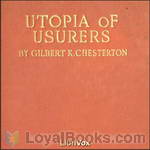 A Utopia of Usurers
A Utopia of Usurers
“Now I have said again and again (and I shall continue to say again and again on all the most inappropriate occasions) that we must hit Capitalism, and hit it hard, for the plain and definite reason that it is growing stronger. Most of the excuses which serve the capitalists as masks are, of course, the excuses of hypocrites. They lie when they claim philanthropy; they no more feel any particular love of men than Albu felt an affection for Chinamen. They lie when they say they have reached their position through their own organising ability... | |
 Everlasting Man
Everlasting Man
This book needs a preliminary note that its scope be not misunderstood. The view suggested is historical rather than theological, and does not deal directly with a religious change which has been the chief event of my own life; and about which I am already writing a more purely controversial volume. It is impossible, I hope, for any Catholic to write any book on any subject, above all this subject, without showing that he is a Catholic; but this study is not specially concerned with the differences between a Catholic and a Protestant... | |
 Catholic Church and Conversion
Catholic Church and Conversion
Written after his conversion, G.K. Chesterton explains his understanding of Catholicism, and discusses the nature and the process of conversion to the Catholic faith. | |
By: G. MacLaren (George MacLaren) Brydon (1875-1963) | |
|---|---|
 Religious Life of Virginia in the Seventeenth Century The Faith of Our Fathers
Religious Life of Virginia in the Seventeenth Century The Faith of Our Fathers
| |
By: Gaius Glenn Atkins (1868-1956) | |
|---|---|
 Modern Religious Cults and Movements
Modern Religious Cults and Movements
| |
By: Gautama Buddha (563-483 BC) | |
|---|---|
 Der Wahrheitpfad (Dhammapadam)
Der Wahrheitpfad (Dhammapadam)
Das Dhammapada ist eine Anthologie von Aussprüchen des Buddha. Dabei sind die Verse so ausgewählt, dass sie den Kern der Lehre des Buddha wiedergeben. Es ist einer der bekanntesten Texte dieser Lehre und findet seine weiteste Verbreitung im südlichen Buddhismus. Dort begleitet es die Schüler des Buddha vom Anfang bis zum Ende ihres Pfades. Darüber hinaus ist es ein Meisterwerk sowohl der frühen buddhistischen Literatur als auch der indischen Tradition des Karvya (Belle Lettre). | |
By: George A. (George Augustus) Cobbold (1857-) | |
|---|---|
 Religion in Japan
Religion in Japan
| |
By: George Adam Smith (1856-1942) | |
|---|---|
 Jeremiah : Being The Baird Lecture for 1922
Jeremiah : Being The Baird Lecture for 1922
| |
By: George Alfred Henty (1832-1902) | |
|---|---|
 A Jacobite Exile Being the Adventures of a Young Englishman in the Service of Charles the Twelfth of Sweden
A Jacobite Exile Being the Adventures of a Young Englishman in the Service of Charles the Twelfth of Sweden
| |
By: George Barton (1866-1940) | |
|---|---|
 Angels of the Battlefield
Angels of the Battlefield
"Angels of the Battlefield: A History of the Labors of the Catholic Sisterhoods in the Late Civil War" chronicles the compassionate services of these dedicated women during the bitter and bloody U.S. Civil War. These accounts also offer some important historical details, giving some important insights into the people and events of the war. This is the Second Edition, Revised and Enlarged. - Summary by Larry Wilson | |
By: George Berkeley (1685-1783) | |
|---|---|
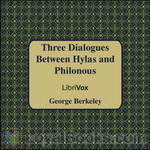 Three Dialogues Between Hylas and Philonous
Three Dialogues Between Hylas and Philonous
Berkeley uses Hylas as his primary contemporary philosophical adversary, John Locke. A Hylas is featured in Greek mythology and the name Hylas is derived from an ancient Greek word for “matter” which Hylas argues for in the dialogues. Philonous translates as “lover of mind.” In The First Dialogue, Hylas expresses his disdain for skepticism, adding that he has heard Philonous to have “maintained the most extravagant opinion… namely, that there is no such thing as material substance in the world.” Philonous argues that it is actually Hylas who is the skeptic and that he can prove it. Thus, a philosophical battle of wit begins. | |
By: George Douglas Watson (1845-1924) | |
|---|---|
 Soul Food
Soul Food
A guide for Christians to walk a godly life. Covering various practical and spiritual topics. | |
By: George F. Dillon (1836-1893) | |
|---|---|
 War of Antichrist with the Church and Christian Civilization
War of Antichrist with the Church and Christian Civilization
The War of Anti-Christ with the Church and Christian Civilization is a book written in 1885 by an Irishman, George F. Dillon, DD. It was republished by Fr. Denis Fahey in 1950 as Grand Orient Freemasonry Unmasked as the Secret Power Behind Communism. The central theme of the book alleges that atheistic Illuminism, through the infrastructure of Grand Orient freemasonry, driven by the ideology of the philosophies laid the foundations for a large scale, ongoing war against Christendom in general and Catholic Church in particular... | |
By: George Frederick Kunz (1856-1932) | |
|---|---|
 Curious Lore of Precious Stones
Curious Lore of Precious Stones
Full title is "The Curious Lore of Precious Stones, being a description of their sentiments and folklore, superstitions, symbolism, mysticism, use in medicine, protection, prevention, religion, and divination, crystal gazing, birthstones, lucky stones, and talismans, astral, zodiacal, and planetary." Just about everything you ever wanted to know about precious stones, aside from their formation, acquisition, and chemical composition. - Summary by TriciaG | |
By: George Frederick Maclear (1833-1902) | |
|---|---|
 Class-Book of Old Testament History
Class-Book of Old Testament History
This is classic book by scholar, educator, theologian and preacher George Frederick Maclear, headmaster of King's College School, London, and later warden of St. Augustine's Missionary College, Canterbury. Each short chapter is a nugget of events and persons of the Old Testament, giving a very accessible overview of history from the Earliest Times to those of Ezra and Nehemiah. | |
By: George Gillespie (1613-1648) | |
|---|---|
 The Works of Mr. George Gillespie (Vol. 1 of 2)
The Works of Mr. George Gillespie (Vol. 1 of 2)
| |
By: George Henry Borrow (1803-1881) | |
|---|---|
 Letters of George Borrow to the British and Foreign Bible Society
Letters of George Borrow to the British and Foreign Bible Society
| |
By: George Henry Sumner (1824-1909) | |
|---|---|
 Churchwardens' Manual their duties, powers, rights, and privilages
Churchwardens' Manual their duties, powers, rights, and privilages
| |
By: George Herbert (1593-1633) | |
|---|---|
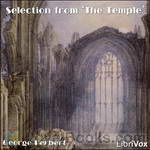 Selection from 'The Temple'
Selection from 'The Temple'
George Herbert (April 3, 1593 – March 1, 1633) was a Welsh poet, orator and a priest. Throughout his life he wrote religious poems characterized by a precision of language, a metrical versatility, and an ingenious use of imagery or conceits that was favored by the metaphysical school of poets. He is best remembered as a writer of poems and hymns such as “Come, My Way, My Truth, My Life” and “The King of Love My Shepherd Is.” | |
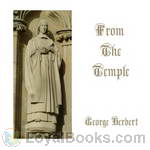 From The Temple
From The Temple
George Herbert was a country minister, and a protégé of the great metaphysical poet John Donne. In The Temple, Herbert combines these two aspects of his training in one of the greatest cycles of religious poetry ever written. This is reading of a selection of these poems. | |
 Country Parson: His Character and Rule of Life
Country Parson: His Character and Rule of Life
George Herbert was an English poet, orator, and priest. In The Country Parson he describes the roles of the priest and offers practice advice to English clergymen about how to fulfill their duties. - Summary by Karen Clausen-Brown | |
By: George Herbert Betts (1868-1934) | |
|---|---|
 How to Teach Religion Principles and Methods
How to Teach Religion Principles and Methods
| |
By: George Hodges (1856-1919) | |
|---|---|
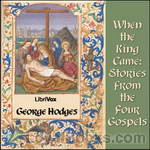 When the King Came: Stories from the Four Gospels
When the King Came: Stories from the Four Gospels
THIS tells how once the King of Glory came from heaven to visit us here on earth and live amongst us; how He was born in Bethlehem and brought up in Nazareth; how He went about telling people of the Heavenly Kingdom, and doing good, ministering to the sick and the poor; how He was misunderstood, and disliked, and even hated, till at last they took Him in Jerusalem and nailed Him to a cross so that He died; and how, after that, He came to life again, and went back into heaven, promising to return. | |
By: George John Romanes (1848-1894) | |
|---|---|
 A Candid Examination of Theism
A Candid Examination of Theism
| |
 Thoughts on Religion
Thoughts on Religion
| |
By: George Ludington Weed (1828-1904) | |
|---|---|
 A Life of St. John for the Young
A Life of St. John for the Young
| |
By: George MacDonald (1824-1905) | |
|---|---|
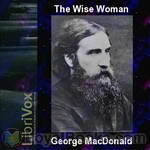 The Wise Woman
The Wise Woman
George MacDonald was an influential Scottish author, poet, and Christian minister. MacDonald’s works (particularly his fairy tales and fantasy novels) claimed the admiration of such authors as J. R. R. Tolkien, C. S. Lewis, and Madeleine L’Engle. The Wise Woman fairy tale was one of MacDonald’s more popular works. This delightful story describes how a woman of mysterious powers pays visits to two very different young girls: one a princess, the other a shepherd’s daughter. Neither girl is left unchanged by the startling events that are unleashed as a result: and the reader is confronted by astonishing fairy-worlds in which the girls are forced to choose between good and evil... | |
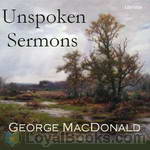 Unspoken Sermons
Unspoken Sermons
George MacDonald was a Scottish author, poet, and Christian minister. In his day he was considered one of the great Victorian authors on par with Dickens, Thackeray, Kipling and the like. His reputation as an author, however, has not fared as well largely because of the ubiquitous and fervent presence of religion throughout his works.MacDonald's theology, though sprinkled liberally throughout his fairly substantial number of books, is perhaps nowhere more palpable than in Unspoken Sermons. These sermons, though by no means amongst the most popular of MacDonald's work, have had theological impact from their first appearance... | |
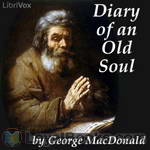 Diary of an Old Soul
Diary of an Old Soul
George MacDonald, a Scottish pastor, wrote these short poems, one for each day of the year, to help him with the severer misfortune he was experiencing. The poems are filled with hope and promises of Christ, yet, he also writes about his doubts. These poems are wonderful to listen to for people of any religion. | |
 Alec Forbes of Howglen
Alec Forbes of Howglen
| |
 Miracles of Our Lord
Miracles of Our Lord
Actions, it is often said, speak louder than words. But in the life of Christ - as George MacDonald shows - both spoke with an equal volume. Much attention is often devoted to what Jesus said while He was on earth, but many in our modern age are puzzled by the miracles. What are we to make of them? MacDonald - wise and gentle as ever - invites us into the miracles as a doorway into the inner life of Christ that we may intimately know Him and His Father. | |
 England's Antiphon
England's Antiphon
"In this book I have sought to trace the course of our religious poetry from an early period of our literary history. ... [I]f its poetry be the cream of a people's thought, some true indications of the history of its religious feeling must be found in its religious verse, and I hope I have not altogether failed in setting forth these indications. My chief aim, however, will show itself to have been the mediating towards an intelligent and cordial sympathy betwixt my readers and the writers from whom I have quoted. In this I have some confidence of success. Heartily do I throw this my small pebble at the head of the great Sabbath-breaker Schism." - From the Preface | |
By: George Manville Fenn (1831-1909) | |
|---|---|
 Quicksilver The Boy With No Skid To His Wheel
Quicksilver The Boy With No Skid To His Wheel
| |
 Mass' George A Boy's Adventures in the Old Savannah
Mass' George A Boy's Adventures in the Old Savannah
| |
By: George Müller (1805-1898) | |
|---|---|
 Answers to Prayer, from George Müller's Narratives
Answers to Prayer, from George Müller's Narratives
Mr. Brooks, in this compilation, has endeavored to select those incidents and practical remarks from Mr. Müller's Narratives, that show in an unmistakeable way, both to believers and unbelievers, the secret of believing prayer, the manifest hand of a living God, and His unfailing response, in His own time and way, to every petition which is according to His will. (From the Preface) | |
By: George Sale (1697-1736) | |
|---|---|
 The Koran (Al-Qur'an)
The Koran (Al-Qur'an)
| |
By: George Smith (1833-1919) | |
|---|---|
 Life of William Carey
Life of William Carey
| |
By: George Spring Merriam (1843-1914) | |
|---|---|
 The Chief End of Man
The Chief End of Man
| |
By: George Thomas Daly (1872-1956) | |
|---|---|
 Catholic Problems in Western Canada
Catholic Problems in Western Canada
| |
By: George Tybout Purves (1852-1901) | |
|---|---|
 Joy in Service; Forgetting, and Pressing Onward; Until the Day Dawn
Joy in Service; Forgetting, and Pressing Onward; Until the Day Dawn
| |
By: George Tyrrell (1861-1909) | |
|---|---|
 The Faith of the Millions (2nd series)
The Faith of the Millions (2nd series)
| |